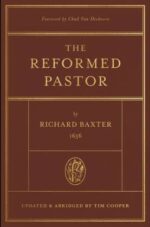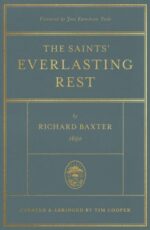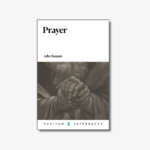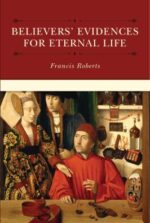save
$4.50Temptation and Sin (Volume 6 of The Works of John Owen)
$23.50$28.00
This is very the most important treatise ever written on the subject of Temptation and Sin. Certainly the primary source work for multitudes of writings on the subject since then. Includes Owen’s incomparable On the Mortification of Sin in Believers, followed by Of Temptation: The Nature and Power of it, with further material on the deceitfulness of sin, its prevalence in believers, and a practical exposition of Psalm 130.
In stock
Temptation and Sin
John Owen Volume 6
This is very the most important treatise ever written on the subject of Temptation and Sin. Certainly the primary source work for multitudes of writings on the subject since then. Includes Owen’s incomparable On the Mortification of Sin in Believers, followed by Of Temptation: The Nature and Power of it, with further material on the deceitfulness of sin, its prevalence in believers, and a practical exposition of Psalm 130.
Despite his other achievements, Owen is best famed for his writings. These cover the range of doctrinal, ecclesiastical and practical subjects. They are characterized by profundity, thoroughness and, consequently, authority. Andrew Thomson said that Owen ‘makes you feel when he has reached the end of his subject, that he has also exhausted it.’ Although many of his works were called forth by the particular needs of his own day they all have a uniform quality of timelessness. Owen’s works were republished in full in the nineteenth century. Owen is surely the Prince of the Puritans. ‘To master his works’, says Spurgeon, ‘is to be a profound theologian.’
About the Author
John Owen was born in 1616 in Stadhampton, Oxfordshire and died in Ealing, West London, in 1683. During his sixty-seven years he lived out a life full of spiritual experience, literary accomplishment, and national influence so beyond most of his peers that he continues to merit the accolade of ‘the greatest British theologian of all time.’
No outline of Owen’s life can give an adequate impression of the stature and importance to which he attained in his own day. He was summoned to preach before Parliament on several occasions, most notably on the day after the execution of Charles I. During the Civil War, Owen’s merit was recognized by General Fairfax, then by Cromwell who took him as a Chaplain to Ireland and Scotland. He was adviser to Cromwell, especially though not exclusively on ecclesiastical affairs, but fell from the Protector’s favour after opposing the move to make him King. In 1658 he was one of the most influential members of the Savoy Conference of ministers of Independent persuasion. After the Ejection he enjoyed some influence with Charles II who occasionally gave him money to distribute to impoverished ejected ministers. All in all, he was, with Richard Baxter, the most eminent Dissenter of his time.
Despite his other achievements, Owen is best famed for his writings. These cover the range of doctrinal, ecclesiastical and practical subjects. They are characterized by profundity, thoroughness and, consequently, authority. Andrew Thomson said that Owen ‘makes you feel when he has reached the end of his subject, that he has also exhausted it.’ Although many of his works were called forth by the particular needs of his own day they all have a uniform quality of timelessness.
| Weight | 2.0 lbs |
|---|












